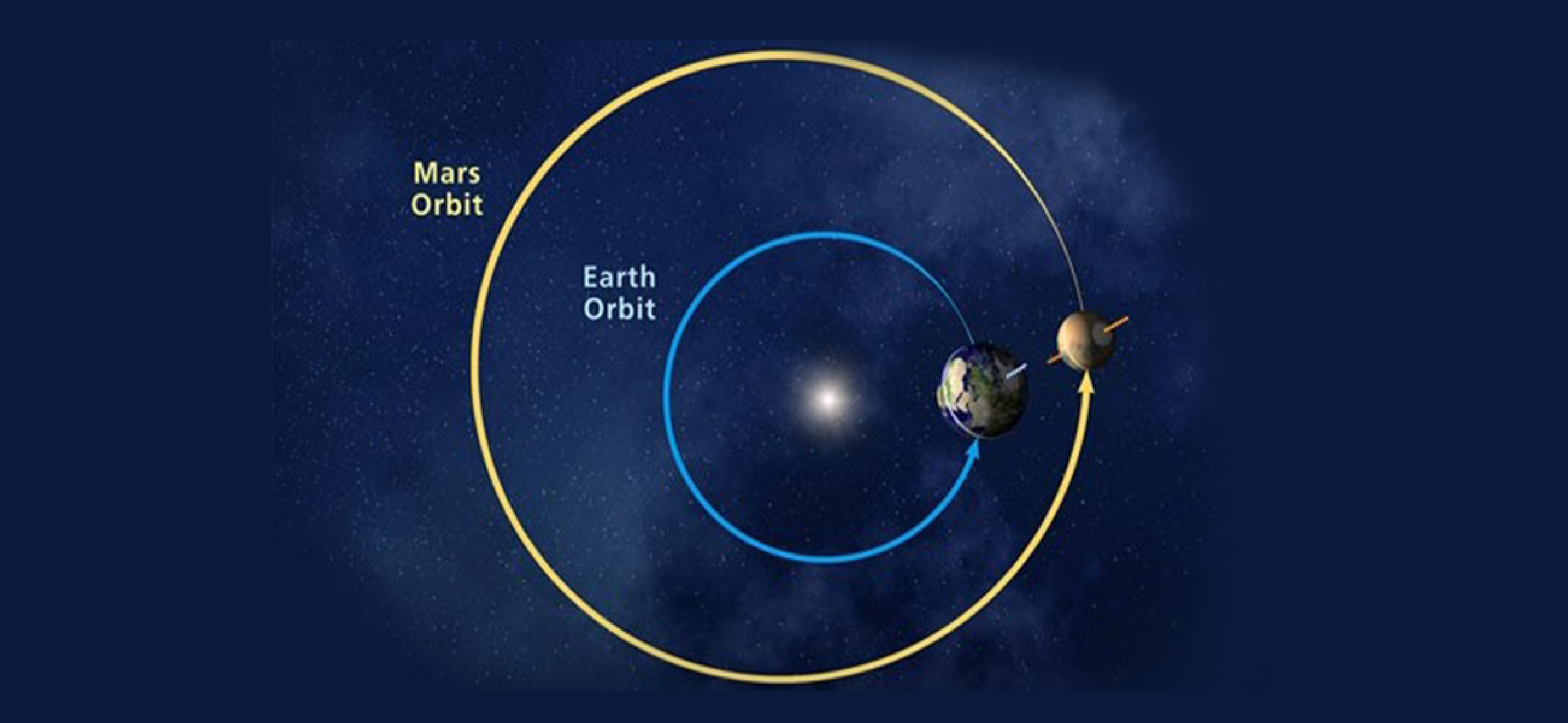At 5:58pm (EDT) on 19 July 2020, the United Arab Emirates (UAE) successfully launched their Hope Probe from the Tanegashima Space Centre in Japan. The probe was carried by the Japanese H-IIA rocket and is expected to reach Mars in February 2021, celebrating the 50th anniversary of the founding of the country. Hope Probe marks the first interplanetary voyage of the Arab world and also the first of three international missions to Mars this summer. The other two missions that were covered in the last issue of this e-Newsletter, Chinese Tianwen-1 and NASA’s Perseverance Rover were also launched on 23 July from Hainan Province and 30 July from Kennedy Space Centre in Florida respectively. These three nations are taking advantage of this launch window, when Earth and Mars are favourably aligned, that only occurs once every 26 months.
The Hope Probe will stay in orbit for a Martian year, that is almost two years on Earth. The scientific objective of the Hope Probe is to provide a complete picture of the Martian atmosphere. These include understanding climate dynamics and the global weather map through characterising the lower atmosphere of Mars, explaining how the weather changes the escape of hydrogen and oxygen through correlating the lower atmosphere conditions with the upper atmosphere and understanding the structure and variability of hydrogen and oxygen in the upper atmosphere, as well as identifying why Mars is losing them into space.
Other than scientific objectives, there is another objective which coincides with one of the missions of the Council of the Hong Kong Laureate Forum, that is, to inspire young generation to pursue science. Also, the UAE Mars mission has pushed societal norms. According to the journal Nature, women make up 34% of the team and 80% of the mission’s scientists. Ms Sarah Al-Amiri, now the UAE’s Minister of State for Advanced Sciences and Deputy Project Manager of the Emirates Mars Mission, was inspired and decided to pursue and learn as much as she could about space after seeing an image of the Andromeda Galaxy at the age of 12. It is Emirati leaders’ and her hope to bolster as well as inspire a new generation of young people and female to pursue careers in sciences by widening youth engagement in the fields of STEM.
Photo Credit:
The National Aeronautics and Space Administration (NASA)
July 2020


